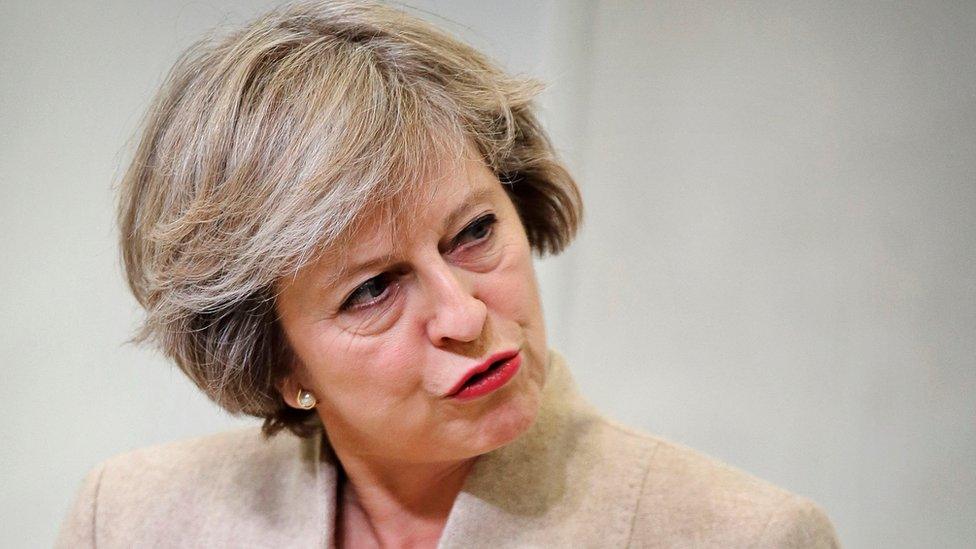Where is the procedure on Brexit?
- Published

Theresa May has refused to give a 'running commentary' on Brexit negotiations
Theresa May is a fan of proper procedure.
She has brought back proper Cabinet government with formal committees, and is reinstituting a more structured way of developing ideas using Green Papers, White Papers, and then finally, legislation.
It's a more cumbersome way of bringing in policy, but in theory, a smoother one that produces better government in the end.
Political pressure
Produce a Green Paper - a first draft if you like - then a second, better draft, the White Paper, with the wrinkles almost gone. Then, finally, a bill that sails through Parliament, its rougher edges smoothed, and conveniently, political opposition having faded away - or at least argued out over the process.
But when it comes to the government's biggest challenge, untangling ourselves from the European Union, ministers seem much less clear about what the procedure really is, facing pressure from MPs of almost every political persuasion - Labour, the SNP, and the Liberal Democrats all today pushing for more say, and for ministers to fill in more of the blanks about what they actually intend to do.
Labour, the Liberal Democrats and the SNP are all now calling for a vote on the basic terms of the negotiations before the PM triggers the legal process by the end of March.
Right now, the government is resisting those calls. There is an expectation that there will ultimately be votes on the agreement - with the prime minister's "Great Repeal Bill" and at the end of the process, on the ultimate deal.
But that is a long time away and, for many MPs, simply not good enough, when the process of negotiations will shape our relationship with the rest of the world for years to come.
And with no votes any time soon, there is also - so far - nothing on paper, nothing that fits into the prime minister's chosen template of Green Papers, White Papers, and then ultimately legislation.
But what if that was the plan? In recent days sources have told the BBC that the government was planning to produce a Green Paper this autumn with the broad outlines of its Brexit objectives.
One source said "we were told there would be one in October", and that the financial sector had been asked to provide "a data dump and a shopping list" by the end of last month in order to facilitate the process.
Another source said they had been briefed by officials from Numbers 10 and 11 that the Green Paper "was expected late September".
'No running commentary'
One City insider said "it was a serious idea" but that it had now been "dropped". As another source described it: "It's gone away - the only thing they agree on is so high level that there would only be one page...I'm not sure that there is a coherent plan."
It's also been suggested that the government changed its mind about having a Green Paper because ministers don't want to be a hostage to anything they say now, before the full negotiations begin.
The prime minister has made it plain, having given a deadline for the legal process to begin, that she is not willing to give, as we're becoming familiar with hearing, a "running commentary".
And according to Number 10 however, it's not the case that the Green Paper was ever part of the plan - one source described it as "tosh".
And officials at the two new Brexit departments say they are not aware of the idea, although one Cabinet minister is understood to be pushing Downing Street to give them permission to produce their own Green Paper for their department on its plans for Brexit.
But opposition politicians, some Tory backbenchers, business and most importantly the public, are looking to Number 10 for any guidance about what they plan to achieve - and where it is not forthcoming, there is a vacuum that others will fill.